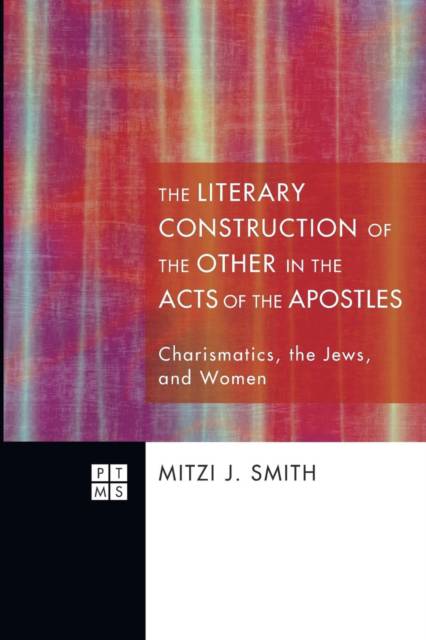
- Retrait gratuit dans votre magasin Club
- 7.000.000 titres dans notre catalogue
- Payer en toute sécurité
- Toujours un magasin près de chez vous
- Retrait gratuit dans votre magasin Club
- 7.000.0000 titres dans notre catalogue
- Payer en toute sécurité
- Toujours un magasin près de chez vous
The Literary Construction of the Other in the Acts of the Apostles
Charismatics, the Jews, and Women
Mitzi J Smith
36,95 €
+ 73 points
Format
Description
Too often the negative characterization of "others" in the biblical text is applied to groups and persons beyond the text whom we wish to define as the Other. Otherness is a synthetic and political social construct that allows us to create and maintain boundaries between "them" and "us." The other that is too similar to us is most problematic. This book demonstrates how proximate characters are constructed as the Other in the Acts of the Apostles. Charismatics, Jews, and women are proximate others who are constructed as the external and internal Other.
Spécifications
Parties prenantes
- Auteur(s) :
- Editeur:
Contenu
- Nombre de pages :
- 186
- Langue:
- Anglais
- Collection :
- Tome:
- n° 154
Caractéristiques
- EAN:
- 9781608993840
- Date de parution :
- 01-01-11
- Format:
- Livre broché
- Format numérique:
- Trade paperback (VS)
- Dimensions :
- 152 mm x 226 mm
- Poids :
- 258 g

Les avis
Nous publions uniquement les avis qui respectent les conditions requises. Consultez nos conditions pour les avis.






